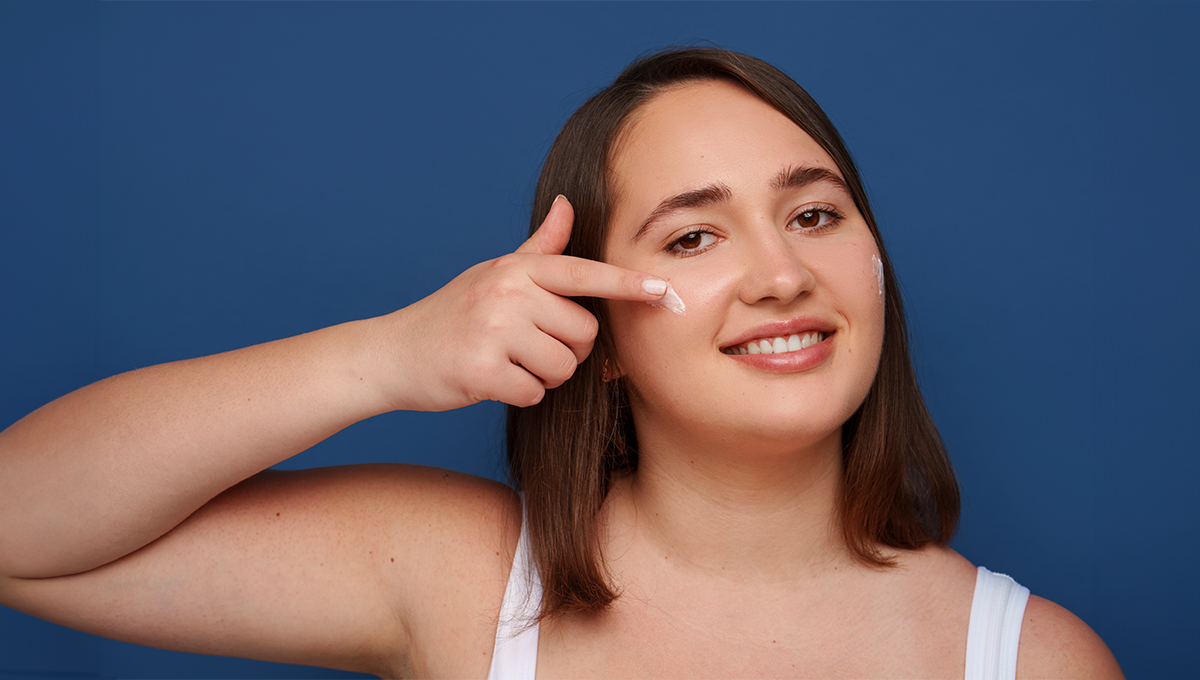
Creating and adhering to a skincare regimen is the secret to having radiant, healthy skin. It doesn’t have to be difficult if you want greater outcomes, but it ought to be consistent.
Everybody’s skin will likely age uniquely and exhibit various aging symptoms. It includes
● fine lines,
● wrinkles,
● hyperpigmentation,
● and more.
You will lose out on the benefits of prevention if you ignore these issues until after they manifest. You’re less prone to worry over aging skin the earlier you start.
However, how can one determine at what age or when to start anti aging skincare regimen? Don’t worry; this guide will take care of all your questions.
Understanding Aging and Skincare Needs
Numerous factors, such as
● UV radiation exposure,
● hyaluronic acid depletion,
● and decreased skin cell regeneration,
contribute to the natural aging process. Because UV rays from the sun damage the skin’s DNA, they cause
● wrinkles,
● fine lines,
● and age spots,
● major contributors to premature aging.
Furthermore, UV radiation damages the collagen and elastin fibers that sustain the skin. When the skin loses hyaluronic acid, a chemical that aids in moisture retention, it leads to reduced skin hydration and suppleness.
That results in dryness and the formation of wrinkles. In addition, the rate of skin cell turnover decreases with age, leaving the complexion lackluster. To successfully address the indications of aging, it is crucial to
● incorporate sun protection,
● hydrate skincare products,
● and promote skin cell turnover through exfoliating and other treatments.
When to Use Anti-Aging Products: Decoding the Right Age
According to skin specialists, puberty is the right age to start using anti aging products especially if you want to keep your complexion looking gorgeous and healthy well into old age.
As early as your 20s, is when you can and should begin using these products. After all, the intention is to avoid aging symptoms as much as possible, and reversing indicators is frequently far more expensive and difficult than preventing them.
Otherwise, anti-ageing products won’t stop you from seeming a day older than you are. Although our skin changes naturally over time, we can ultimately achieve a healthier appearance by protecting and nourishing our skin.
Signs You Should Start Anti-Aging Skincare
There are various signs you should start anti aging skincare, however these are some of the most common ones:
● creases and fine lines, especially where there is more movement, such as the space between the eyebrows, the forehead, and the area around the eyes
● shadowy areas behind the eyes
● hyperpigmentation, another name for dark spots
● dry skin
● visible, enlarged pores
● inconsistent skin tone
● uneven cutaneous tone
● loss of the natural radiance in your skin
● lack of tightness
Anti-Aging Strategies for Every Age
To reduce the signs of aging, techniques range in priorities and the modifications required at every stage of life.
Products In Your 20s
● To prevent UV damage, begin with a simple skincare regimen that includes a moisturizer, mild cleanser, and broad-spectrum sunscreen.
● Utilize antioxidant products, such as vitamin C, to counteract free radicals and stop the onset of premature aging.
● Moisturizers containing hyaluronic acid keep skin moisturized, and mild exfoliation using AHAs like glycolic acid encourages cell turnover and preserves the skin’s youthful appearance.
When You’re Between 40 and 50 Years Old:
● To fight dryness and moisture loss, use hyaluronic acid serums and heavier moisturizers.
● To improve skin texture, minimize fine wrinkles, and increase collagen formation, use retinol-containing products.
● Beta hydroxy acids (BHAs), like salicylic acid, and alpha hydroxy acids (AHAs), like glycolic acid, aid in skin tone improvement, dead skin cell exfoliation, and wrinkle and age spot reduction.
Healthy Skin Beyond
● To keep your skin healthy and stop additional damage, apply sunscreen and moisturizing products daily.
● Examine solutions such as expert chemical peels, laser treatments, or injectables to target issues like severe wrinkles or volume loss.
● Adjust your skincare routine depending on your needs and lifestyle variables, such as hormonal fluctuations and environmental exposure.
● Patience and consistency are essential, regardless of age when utilizing anti-ageing products.
● For individualized advice, always patch-test fresh goods and see a dermatologist.
Advanced Anti-Aging Treatments
Even though some modern at-home anti-ageing ingredients are incredibly effective, you may eventually benefit from more specialized options, such as the office-based procedures that medical aestheticians specialize in.
For example, there are certain procedures, like dermaplaning, that you just cannot accomplish at home. To improve the penetration of your anti-ageing products, this skin therapy uses a razor to remove dry, dead skin.
Regarding the specialist services provided, cutting-edge anti-ageing skin care procedures consist of:
● Hydro Dermabrasion Machine: The machine can remove dirt, dead skin cells, and oil, leaving the skin smoother and brighter.
● LED Light Therapy: Increases the formation of collagen, lessens the redness, and eliminates acne-causing bacteria
● IPL Photofacial Machine: It addresses dark spots and inflammation on the skin, balancing out skin tone to ensure it looks refreshed.
● Microneedle Roller: It targets lines and wrinkles by encouraging collagen formation that tightens and firms the skin.
● Oxygen Facial Machine: It promotes the creation of collagen and blood flow to revitalize skin.
Conclusion
Retinol, vitamin C, and hyaluronic acid are examples of active ingredients in skin care products that can help reduce the look of fine lines and wrinkles. It promotes the skin’s natural production of collagen and elastin.
When to start using anti aging products can be a difficult question. While individuals in their 20s and 30s can begin using these anti-ageing goods in their skin care routine, skincare40s and 50s can get the most benefits.
To protect their skin, everyone should apply a moisturizer and sunscreen with at least 30 SPF daily. You should seek additional guidance and treatment from a dermatologist regarding the appearance of your skin.
FAQs
1. Is it ever too late to start anti-aging skincare?
No, starting anti aging skincare products is never too late. Some even argue that you should begin before you reach your mid-40s or mid-50s. You will have more time to observe the benefits if you start earlier. At any age, though, you can still reduce future harm.
2. How do I choose the right anti-aging products for my skin type?
Determine your skin type’s unique concerns (such as dryness, acne, or sensitivity) and search for anti-ageing solutions to address them to select the best ones. Choose mild, non-comedogenic formulas appropriate for your skin type (oily, dry, or combination), considering your skin’s requirements for hydration and exfoliation.
3. Can men use the same anti-aging skincare products as women?
Since most of these products are made to address certain skin types or concerns, males can also use the popular skin care ingredients among women.
4. What happens if you use anti-aging products sooner than your age?
If anti-ageing products are customized to address specific skin conditions, using them earlier than necessary may be advantageous. However, using strong chemicals like retinoids too soon or excessively can lead to sensitivity or irritation. A dermatologist’s advice is crucial for choosing the right products and preventi signs of aging.


